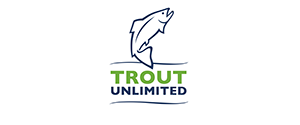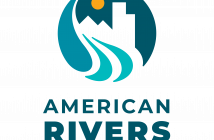 From TU:
From TU:
Trout Unlimited today praised the Bureau of Reclamation’s proposed new criteria for the WaterSMART Water and Energy Efficiency Grants program. Under the proposed new criteria, WaterSMART would prioritize funding for water conservation projects that also enhance river flows and fish and wildlife habitat. Reclamation’s proposed changes finished a 30-day public comment last week.
“This is truly ‘water smart’ in that it makes federal investments go further by delivering benefits for both irrigated agriculture and river health,” said Laura Ziemer, senior counsel and water policy advisor for Trout Unlimited. “It’s also a big step forward in the Department of the Interior’s overall mission of improving the West’s ability to withstand the impacts of severe drought.”
Previously, Reclamation’s WaterSMART evaluation criteria focused on projects that upgrade water systems to achieve water savings. Few of those projects, however, returned the saved water to in-stream flows to boost river health and wildlife habitat. The new criteria reward those agricultural producers taking the time and effort to work in a multi-stakeholder, watershed-based group working to find solutions to water scarcity that benefit both agriculture and rivers.
TU has decades of experience partnering with agricultural producers on collaborative conservation projects. On the Sun River in Montana, for example, TU worked with local irrigators, the WaterSMART program, Coca-Cola and other stakeholders to upgrade a complex network of leaky irrigation canals with lined canals and new pipelines. The result was not only improved water delivery for the irrigation district—but the conserved water also helped replenish flows to the chronically dewatered Sun River.
The wild trout population has doubled with the improved Sun River flows. Trout Unlimited it hopeful more projects like the Sun—that benefit both producers and watersheds—will come from the proposed changes to WaterSMART.
“What’s significant now is that WaterSMART dollars will not only be going to conserve water, but also priority will be given to projects that protect and restore river flows with that conserved water—making the whole river system more resilient to drought,” said Ziemer.
Agriculture has also expressed support for Reclamation’s proposed criteria. The Family Farm Alliance and TU wrote a joint letter commenting on Reclamation’s proposed changes to the WaterSMART program. In their joint letter, TU and the Family Farm Alliance underscore that while showing water savings is still the fundamental requirement of the program, the new criteria promote important related goals, such as encouraging collaboration among river stakeholders and spurring creative water management to address water scarcity.
“We thank Reclamation leadership and staff as well as Department of the Interior officials for their initiative in seizing this opportunity to further President Obama’s goals on drought resilience in the West,” said Steve Moyer, TU’s Vice-President of Governmental Affairs. “They listened to our ideas and worked with TU, agricultural producers, sportsmen and conservation groups to find creative solutions that provide benefits across multiple sectors. That’s really the model for water conservation in the future.”
Trout Unlimited is a non-profit organization with over 150,000 members nationwide dedicated to conserving, protecting and restoring North America’s coldwater fisheries and their watersheds.



